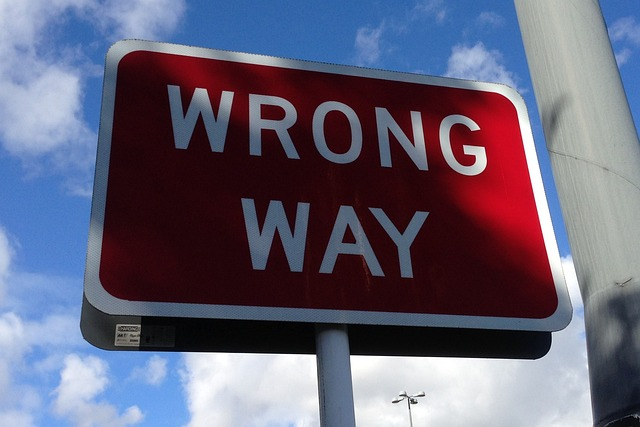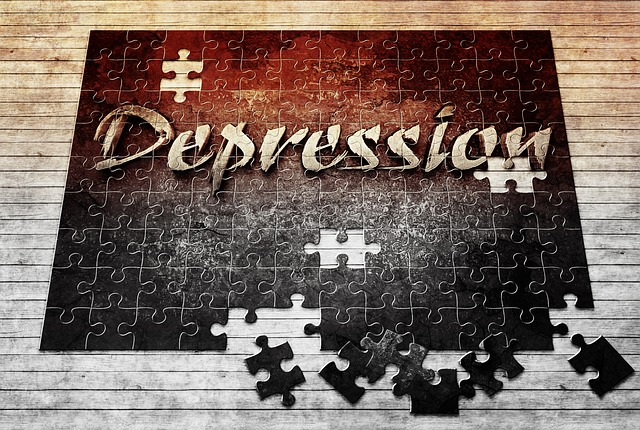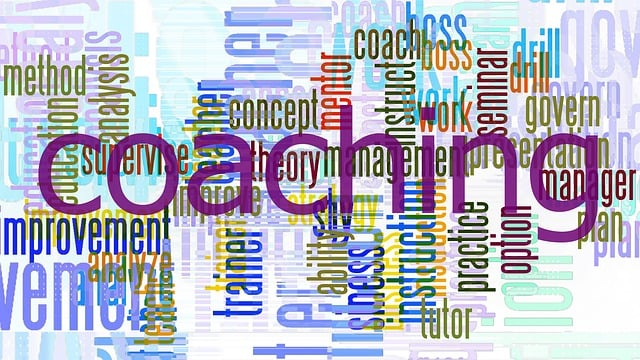A Guide to the Business Decision-Making Process
Making decisions is a critical part of running a successful business. An organization needs to have a process that allows it to make informed and well-thought-out decisions every time. This guide will take you through the steps of the business decision-making process and how you can use it to improve your decision-making skills for your company or organization.

Why Management is a Decision-Making Art
Management is often thought of as an art rather than a science. This is because it involves more than just analyzing numbers and data to make decisions; it’s about understanding people and responding to their needs and goals to lead a successful organization. In this article, we’ll look at why management is a decision-making art, the key components of effective decision-making, and some tips for improving your management skills when it comes time to make tough choices.

At its core, management is all about making decisions. From small daily tasks, such as deciding what tasks need to be done first or who should work on them, to larger strategic objectives, like creating new products or services that will help grow the business, successful managers must be adept at making decisions quickly and accurately. While there are many different approaches to decision-making that each have merits of their own, they all require an understanding of how individuals feel and think to come up with solutions that everyone can agree on.
In addition to understanding people, there are key components of effective decision-making, such as thorough research before making any important choices, careful assessment of potential outcomes based on the available data, weighing risks versus rewards before taking action, and staying open-minded when considering alternative solutions. All these elements combined contribute to successful managerial decision-making, which then leads to higher levels of productivity within the workplace.
Finally, while experience certainly helps in developing strong decision-making abilities over time, it’s also possible for anyone to improve their managerial skills by reading relevant literature or attending workshops related to the topic. Additionally, taking advantage of mentorship programs or networking opportunities can prove beneficial for those seeking additional guidance in this area.
By recognizing why management is a decision-making art form and the key components required for successful results, you should now better understand how you can improve your managerial skills going forward. So don’t hesitate—it’s time to start putting what you’ve learned into practice!
Why Decision-Making is an Important Skill
We all make decisions daily, and it’s an important skill for anyone to have. In this article, we’ll look at why decision-making is such an essential skill and what you can do to improve your decision-making abilities in the future.

The ability to make decisions quickly and accurately is key for most businesses. By evaluating different options and alternatives ahead of time, leaders can select the best course of action possible, which can positively impact their organization over time. This skill also allows individuals to make educated guesses when there isn’t enough information or data available so they can still come up with solutions even when the odds are against them.
In addition, having strong decision-making skills also helps reduce workplace stress and prevent uncertainty from becoming an issue. When everyone knows what decisions need to be made and how they should make them, it eliminates any friction throughout the process, making everyone involved more productive and efficient in their roles.
Finally, professionals need to develop their decision-making skills because it helps set them apart from peers who may not possess these qualities. A sharp eye for detail and the ability to make calculated decisions under pressure are invaluable traits employers look for when hiring new candidates or promoting existing ones within their organization.
By understanding why decision-making is such an important skill, you should be able to identify strengths and weaknesses in yourself that you can then focus on improving moving forward. This way, you’ll be better equipped than ever before when it comes time to make crucial life choices within your business or life.
Steps of the Business Decision-Making Process
The first step in the decision-making process is identifying the problem or objective. Before deciding on a course of action, you must understand what needs to be done and why it needs to be done in the first place. Once you have identified the problem or objective, you can then move on to gathering facts and relevant information related to it. This includes market research, customer feedback, industry trends, and more, depending on what type of decision is being made.

After gathering all relevant information, it’s time to identify potential solutions or alternatives. This involves looking at different options available and assessing their pros and cons to determine which would be best for your organization. Consider any potential risks associated with each option before deciding on one so that you are well aware of any potential pitfalls that may arise from your decision before making it final.

Once you’ve determined which solution is best suited for your particular situation, it’s then time to take action by implementing it into your company or organization. The implementation process could involve the following:
- Creating new policies or procedures.
- Training employees on using new technology if necessary.
- Changing existing processes that need updating to work better with the new strategy being implemented.
After everything has been set up successfully, regularly monitor the results of your decision and adjust as needed if there are any discrepancies between expected outcomes and actual results seen after implementation.

By following these steps of the business decision-making process closely, you should notice an improvement in the quality of decisions made by those managing your company over time which should result in positive growth for everyone involved in the long run.
What is an example of making effective decisions?
An example of making an effective decision would be a company looking to improve customer service. After gathering relevant information, such as customer feedback and industry trends, the company could invest in better employee training or implement new technology that makes it easier for customers to interact with them. Once the solution has been chosen, the implementation process should begin by setting up necessary policies or procedures and training staff on using the new technology before making it available to customers. Monitoring the results of this decision afterwards will enable the business owners to assess if their decision was effective in improving customer service or if further adjustments are needed.
This is just one example of how effective decision-making can help businesses and organizations succeed. By following the steps outlined above and ensuring that all decisions are based on relevant information gathered, any business owner or manager should be able to make sound decisions for their company or organization confidently. This will enable them to maximize their resources, save time, and ultimately lead to better results.
What can other resources help when it comes to improving decision-making skills?
In addition to the steps outlined above, there are a few other resources a business owner or manager can use if they want to improve their decision-making skills. They could consider seeking out professional advice from experienced mentors or consultants in their field. This will allow them to gain valuable insight and advice on making better business decisions.

Reading books or attending seminars related to decision-making can also help someone improve their skills in this area. Plenty of great resources guide how to assess different options and situations, weigh risks versus rewards, and ultimately analyze information before making a final decision.
Creating an environment where employees feel comfortable voicing opinions and discussing ideas is also beneficial when making decisions. It allows everyone involved to have a say which could lead to better results. Open dialogue between all team members should lead to more informed decisions.
By utilizing all of these resources and following the steps outlined for effective decision-making, a business owner or manager should be able to make better decisions for their company or organization in no time. This will lead to more successful outcomes in the long run and help ensure that everyone involved is happy with the results.
When decision-making goes wrong
Making decisions is an inescapable part of running a business. Even the most experienced professionals can make mistakes when it comes to decision-making. In this blog post, we’ll look at some common reasons why decision-making goes wrong and how you can mitigate these risks to improve your decision-making skills.

One of the most common reasons decision-making can go wrong is a need for more information or data. With enough data to make informed decisions, it’s easier to make rushed decisions that may not benefit your organization in the long run. The best way to avoid making bad decisions due to a lack of information is to ensure you have access to all relevant data before analyzing options and alternatives.
Another reason why decision-making can go wrong is because of groupthink. Groupthink occurs when people are pressured into conforming their opinions with those already expressed by the majority to maintain harmony within the group. This can cause more conservative solutions and strategies to be chosen instead of potentially riskier ones but could result in greater rewards down the line. To reduce groupthink, create an environment where different opinions and perspectives are welcomed and encouraged.
Lastly, another common reason decision-making goes wrong is emotional biases or personal motivations. Personal feelings must stay in the way when assessing different options or alternatives, as they could lead to irrational decisions that may not be best for your organization. To prevent this from happening, take a step back and objectively assess each option before making any final decisions to ensure it’s what’s best for everyone involved in the long run.
By recognizing some of these potential pitfalls when it comes to decision-making, you should be able to identify them ahead of time and take steps to mitigate any risks associated with them beforehand so that you are always able to make well-informed and rational decisions on behalf of your organization moving forward.
What about Decision Fatigue?
The Stress of Decision Fatigue
Making decisions is an inevitable part of running any business, and the stress of decision fatigue comes with it. Decision fatigue occurs when a person is forced to make too many difficult decisions quickly, resulting in the person feeling physically and mentally exhausted. In this article, we’ll look at what decision fatigue is, how to identify it before it becomes a problem, and how to manage it in yourself and others on your team.

Decision fatigue is caused by making too many decisions over a short period of time. As individuals are asked to make more and more decisions in a single day, their ability to think critically and rationally begins to decline due to exhaustion. This can lead to poorer quality decision-making, which could significantly impact an organization’s success or failure depending on what type of decisions are being made.
The best way to prevent decision fatigue from becoming an issue is to recognize when it’s starting to occur. Typically, signs that you may be experiencing decision fatigue include an inability to focus, irritability, memory problems or difficulty making decisions. If you start noticing any of these symptoms in yourself or colleagues, you must take breaks or switch tasks regularly, so you don’t become overwhelmed with too many choices.
In addition to recognizing the signs and symptoms of decision fatigue, several strategies can help manage this issue, such as delegating tasks whenever possible or taking regular breaks throughout the day. It’s also helpful if leaders set clear expectations for how their teams should approach decision-making, so everyone is on the same page when it comes time for important choices or votes within the organization.
By understanding what decision fatigue is and how you can identify it beforehand, you should nip potential issues in the bud before they become a problem for yourself or any other team members moving forward.
How Coaching Can Support Your Decision-Making Skills
Making decisions can be difficult, especially when we feel overwhelmed or uncertain. Fortunately, there is a way to get the guidance and support needed to make informed and confident decisions. This is where coaching comes in. In this article, we’ll look at how coaching can help you develop your decision-making skills to make better choices in life and work.

At its core, coaching is about understanding your needs and goals while providing you with the necessary resources and tools to achieve them. Coaches act as a sounding board in decision-making by asking questions and offering insights that enable you to assess different options from various points of view before settling on the best course of action for yourself. Coaches also provide support during decision-making, so you’re not left feeling alone or stuck if things don’t go according to plan.
Moreover, having someone who can provide an objective opinion regarding certain matters also helps reduce stress levels and anxiety, which often arise when faced with tough choices. Coaches are trained to listen without judgment, allowing for honest dialogue without fear of criticism or repercussions. This makes it easier for people to express themselves freely while giving them the space to think through different solutions without any distractions or external pressure.
Finally, professional coaches have a deep understanding of human behaviour, enabling them to draw out potential blind spots or areas of improvement that might otherwise be overlooked by an individual working through their decision-making process alone. Their expertise in this area can prove invaluable for those who want to gain clarity into their thought processes and identify areas where they could benefit from additional development over time.
By recognizing how coaching supports your decision-making skills, you should now understand better why investing in such services can be beneficial if you’re ever faced with challenging choices in the future. So don’t hesitate—to take advantage of what this special resource has to offer!



